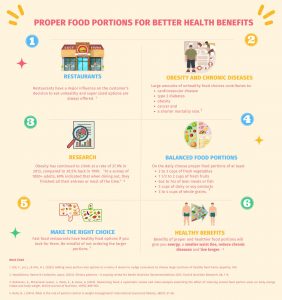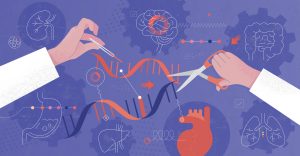Diamond Smith has struggled with excessive facial hair since the age of fifteen. She would shave her face in the morning and then notice the hair returning later in the evening. At that time, Diamond was unaware of the cause of her hair growth. Little did she know that she had a condition known as Polycystic Ovary Syndrome (PCOS). This was a disorder that caused an imbalance of hormones, and was extremely common in women. However, Diamond was unaware of this, and her self-esteem plummeted over time. After years of struggling with her hair growth, Diamond decided to seek help on a medical show called The Doctors. This was a reality show featuring a group of doctors who help find a diagnosis for patients with extreme conditions. In the episode, Diamond opens up about her personal struggles with the hair growth: “I have a beard” she says blatantly.1 Diamond explained that she gets ridiculed everyday by strangers, confessing that they even question her gender at times.

This is not uncommon for those with PCOS, as facial hair on women is still seen as a cultural taboo. Many do not understand that the excess hair growth is due to excess production of testosterone, a male hormone. A more specific explanation requires a clear understanding of PCOS. As it is an ovarian-based disease, PCOS affects a woman’s menstruation cycle and the hormones produced at that time. Normally during a women’s menstruation, a hormone known as FSH is secreted to the ovaries. This allows the eggs to mature and secrete another hormone known as estrogen, which causes the eggs to be released and either be fertilized, or shedded at the next menstruation cycle. In women with PCOS, too much estrogen is produced and causes the eggs to not mature. Instead they remain as fluid-filled sacs known as cysts, which are not shed during menstruation. This causes an array of symptoms, including irregular menstruation cycles, infertility, acne, and hirsutism (excessive hair growth). The hirsutism is caused because there is too much insulin in the blood, along with too much estrogen. The combination causes high levels of testosterone to be produced, which leads to abnormal hair growth and acn.2

Initially, the hair growth was slightly excessive, but still tolerable. Diamond would only have to shave once a week, and although people sometimes teased her, she was hardly affected by it. Once she entered her twenties, her condition worsened dramatically. Diamond began to shave daily, but her facial hair was still visible. On the show, Diamond dismally explained how she would try hair removal creams and waxing in hopes of diminishing the hair growth. Unfortunately, this did not improve her condition:”it just keeps coming back” she says on the episode. It takes three hours for Diamond to get ready for her day; she shaves her face before applying layers upon layers of foundation. Although Diamond tries her best to disguise her condition, people still notice and make rude remarks.“The amount of self-pity I put myself through every single day, it hurts,” Diamond says, as she breaks down in front of the studio audience. At this point, Diamond is still unaware that she has PCOS. In fact, Diamond believes that she caused the excessive hair growth. She wishes to have never shaved in the first place. “If I never would have shaved my face, maybe it wouldn’t have grown as bad as it did,” she says. When asked about the hardest part of her condition, Diamond said it was isolation from her family. “I want to stay home,” she says, instead of going out in public to be ridiculed.3 Diamond does not own any social media, and has isolated herself from the public because she is extremely embarrassed.
Diamond has been reluctant to receive a diagnosis in the past because she feared the results. However, she decided at twenty-three to find a proper diagnosis for her condition. In the episode, Diamond met with OBGYN specialist Dr. Nita Landry, for a consultation. Since excessive hair growth is a sign of androgen production, an ovarian-based disease was suspected. There are a few ways to diagnosis PCOS. The three defining characteristics of PCOS is hyperandrogegism (excess testosterone), irregular menstrual cycles, and having one or multiple cysts in the ovaries. Similar to Diamond, 80% of women with symptoms of excess androgen have PCOS. Since hyperandrogegism causes excessive hair growth, hirsutism is a common symptom of PCOS. Therefore PCOS can be diagnosed simply through physical appearance. The patient may have hirsutism, moderate acne, or other physical symptoms such as weight gain or hair loss. If the patient has three or more of these symptoms, they most likely have PCOS. Another method to diagnose PCOS is through a pelvic exam.A pelvic exam allows any problems with the ovaries or uterus to be detected, which is another sign of PCOS. Blood tests can be used to detect high levels of male hormones, but can also be used to check insulin and cholesterol levels.

Additionally, a more technical method for diagnosis involves an ultrasound of the ovaries. The ultrasound will reveal abnormal follicles, or cysts in the ovaries. The cysts are indicated by the large circular black dots within the ovaries. 90% of women with hirsutism are also found to have polycystic ovaries through the ultrasound. The hirsutism can be evaluated used the Ferry-man-Galley scoring system, which ranks the growth of hair between a scale 1-8.4 The intensity of PCOS can range from mild to severe. Although Diamond has a serious form of hirsutism, 50% of women with PCOS have a much less severe case. Additionally, there may be lower androgen levels, or only a few cysts in the ovaries. Nonetheless, all of these methods are effective ways to diagnose PCOS.
In the episode, Dr. Landry informed Diamond that she will do some blood work and an ultrasound to find out what’s wrong. She then asked Diamond if she had ever been depressed because of the hair growth. Diamond admitted to having depression as well having thoughts of self-harm. Diamond said how comments from other people replay in her head over and over again. Dr. Landry comforted Diamond, and assured her that there will be a solution. “Although we’re here to address the hair growth, we also need to address the emotional aspect of this,” she tells Diamond. Studies have shown a correlation between women with PCOS and mental illnesses such as depression, anxiety, and bipolar disorder. The exact cause for this is unknown, but scientists speculate that it is due to the insulin resistance and hormonal imbalance. Women with PCOS may also feel unhappy with their physical experience and have personal trouble with their femininity. This was the case for Diamond, and the cruel remarks made by strangers have severely affected her. Dr. Landry understood the emotional turmoil Diamond has been through. “At the end of the day, I want you to feel good when you look in the mirror,” she tells her.
Diamond returned to the show after a few weeks for her results. She nervously awaited her diagnosis, and sat with the rest of the doctors in front of the studio audience. Dr. Landry then explained that PCOS is the most likely condition from Diamond’s results. She assured her that Diamond did nothing to cause this and that there may be a genetic link to the disorder. Diamond then revealed how other members of her family have been struggling with this.3 Although the exact cause is unknown, there is a strong correlation between genetics and symptoms of PCOS, such as insulin resistance and hormone levels. Researchers predict that there is not a single PCOS gene, but various genes that are expressed.6 This is why PCOS has a wide range of symptoms and develops differently for each woman.7 Dr. Travis, another doctor on the panel, explained how PCOS is one of the most common endocrine disorders in women. As part of the show, Diamond was able to receive five sessions for advanced laser skin care for her hair growth. The doctors on the show also wanted to treat Diamond’s emotional turmoil, and provided her with three free sessions with a licensed therapist. Diamond expressed her gratitude on the panel. “I’m happy, I’m thankful,” she says, although she still feels incredibly insecure. “I want people to see me for me,” she pleads. The doctors on the panel comforted Diamond and certified that she would feel better soon. Although Diamond’s main concern was the excessive hair growth, there are several other risks for PCOS as well. This includes heart disease or Type 2 diabetes due to insulin resistance.8 Diamond was also appointed to meet a doctor regularly to ensure that the underlying symptoms of PCOS was also being treated.

A few months later, Diamond returned to the show with an incredible transformation. She looked stunning on stage as she greeted the doctors with a warm smile. She continued to radiate on stage. “I feel great, I feel wonderful.” It was evident how much her confidence had grown after the treatment.9 Diamond was able to remove most of her excessive hair growth through the laser treatment, but she was also prescribed the appropriate medication for the other symptoms of PCOS. While this is one way to treat PCOS, a healthy lifestyle has been shown to decrease the symptoms of PCOS significantly. Although Diamond wanted to eradicate her facial hair, other women with PCOS have grown to embrace it. This includes Harnaam Kaur, a British model and anti-bullying activist, and Annie Jones. Annie was part of Barnum & Bailey’s circus in the 1800s, and was referred to as “The Bearded Lady.” Whether women with PCOS decide to embrace their excessive hair growth or not, it is important to be mindful of how our words impact others. Hopefully, knowing the underlying causes of excessive hair growth will help us be more enlightened about this condition in the future.
- Why Am I Growing A Beard? | The Doctors, video file, 5:13, YouTube, posted 2016, https://www.youtube.com/watch?v=_Z6bL7yReJY. ↵
- Polycystic Ovary Syndrome | PCOS | Nucleus Health, video file, 5:27, YouTube, posted 2011, https://www.youtube.com/watch?v=FsNKyKS7M_s . ↵
- “Woman with Beard Gets Diagnosis,” video file, 5:09, YouTube, posted 2016, https://www.youtube.com/watch?v=0R03Xsvh6IQ. ↵
- Adam Felman, “What to know about hirsutism,” January 2019, Medical News Today (website), https://www.medicalnewstoday.com/articles/182659.php. ↵
- “Woman with Beard Gets Diagnosis,” video file, 5:09, YouTube, posted 2016, https://www.youtube.com/watch?v=0R03Xsvh6IQ. ↵
- Mohgah Elsheikh and Caroline Murphy, Polycystic Ovary Syndrome (Oxford: OUP Oxford, 2008), 20-21. ↵
- “Polycystic ovary syndrome (PCOS), Mayo Clinic (blog), https://www.mayoclinic.org/diseases-conditions/pcos/symptoms-causes/syc-20353439. ↵
- Gaber Kovacs, Polycystic Ovary Syndrome (Cambridge, UK: Cambridge University Press, 2000), 26, 44-55. ↵
- “Woman Plagued by Excessive Facial Hair Returns with an Amazing Transformation,” video file, 4:05, YouTube, posted 2017, https://www.youtube.com/watch?v=FI-k9mpBmWc&t=74s. ↵



101 comments
Briley Perkins
I could not imagine what Diamond had to go through at all. I get a little self conscious if I forget to shave my legs after a few days, but she had to worry about her face constantly. I had heard of the condition PCOS from health class, but I had never seen it before on a woman’s face, it was normally underarm hair or excessive hair somewhere else. Shame on the people that ridiculed her in the first place, they do not know what she is going through and have no right to point fingers. I am so glad she got the problem fixed and feels much more confident with herself.
Gabriella Urrutia
This is the first time that I have heard of PCOS. I can’t imagine how hard it must have been for Diamond to deal with this thinking that it was her fault. The article shows how much another persons words can affect a person. The standards that our society have placed can make a person feel like they aren’t good enough and it affects them emotionally.
Cristianna Tovar
I love how this article provides a deep explanation of PCOS to readers because it allows us to develop a well-informed understanding of the condition. With more people learning about this condition, they are more likely to respond in a positive way rather than a negative way. Typically, people laugh or make fun of something that they don’t fully understand/grasp, so the information provided in this article is very beneficial. While reading this article, I felt a lot of sympathy towards Diamond because she had to shave daily and it would take her three hours to get ready for the day, which is something that I think I take for granted. I just wake up, wash up, get dressed, and I’m ready for the day. However, I was so happy to read that she has found a way to control the excessive hair growth and can finally be comfortable in her own skin.
Elisa Nieves
I had already been familiar with Annie Jones, the woman who performed in Barnum and Bailey’s circus in the 1800’s. I was not however aware that PCOS still affected people. I guess it’s easy to forget about diseases when they aren’t talked about enough like Hansen’s disease, Trachoma, or in this case, PCOS. It’s heartbreaking really because there’s thousands of people that deal with these diseases that suffer in silence and are taken advantage of using their condition. For example, people with Hansen’s disease in some countries can be legally denied healthcare, be divorced from without consent, kicked out of establishments, and more. I’m grateful for articles like these, because they help spread awareness on diseases that affect people that need help and understanding. I hope more articles and media like this are shared to educate the public about these diseases so that those affected don’t have to suffer alone.
Audrey Uribe
I had never heard of PCOS until reading this article. Its sad that Dimond struggled emotionally and physically due to our society and her condition. There are these unwritten rules in our society that women must be hairless and men should be hairy. Its sad she had to go through extreme treatment just for what other people deemed right in society. Im glad treatment worked for her and she is happy. Still sad she felt obligated to change something she genetically had no control of.
Amanda Uribe
I loved the ending of this article and the photo of her smiling. She seems to be so happy with her body. It makes me sad how she felt so isolated from her community because of a disease. I have never heard of PCOS until I read this article. I feel like she deserved to be treated better by the people around her. I like how this article did not say there was anything wrong with women with facial hair. It only said that it is seen as taboo. Which is right. I hope that other women with PCOS or facial hair are able to feel safe and accepted for their bodies.
Brianna Trevino
Reading this article really connected with me because I too struggle with PCOS. I went through the same process as Diamond Smith when I was in my early 20’s getting blood work done and ultrasounds just to find out I had in an imbalance in my hormones causing me to have acne that I have become insecure of. It was sad to read about how she felt like shouldn’t leave the house because of how insecure and afraid of the judgment. After recovering her laser treatment from the Doctor Show it was a truly a happy moment to see Damond so happy with herself and appearance.
Amanda Quiroz
Interesting article regarding PCOS. When I saw “The Bearded Lady”, I was a bit thrown off. Diamond went through a lot of struggle to keep her facial hair hidden. It’s hard when you have a condition for a long period of time and don’t know about it. It also shows how easily it can affect someone in their daily life.
Lilia Seijas
Although I was already aware of PCOS, I was not aware of how difficult it is to deal with, both physically and emotionally. Diamond seemed to be in much distress over the amount of facial hair she had, which is reasonable considering that in today’s society, facial hair on women is a taboo subject. It is important to understand that many women deal with this condition and that shaming them into believing they have to change themselves is just completely wrong. It is empowering to see those other women with PCOS embracing their looks and being a beacon of light for young girls going through the same.
Sydney Hardeman
Wow, I had no idea that this condition, PCOS, even existed. I felt extremely bad for Diamond while reading this article. I cannot imagine what it must be like to have to deal with constantly shaving facial hair throughout the day and not understanding why it won’t go away, not to mention the constant criticism from others for her appearance. I was glad to hear that she got treatment for it and that she feels more confident and won’t have to deal with that stuff anymore. Very unique and informative article, nice work.